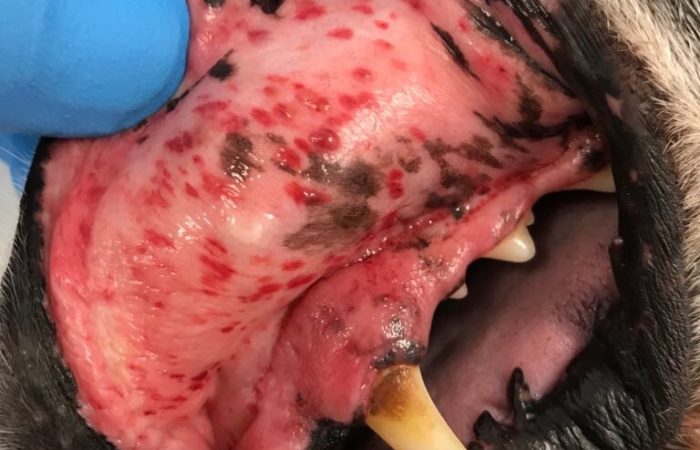The blood and beyond… anaemia, coagulation and transfusion medicine in dogs and cats (2023)
This veterinary thought exchange online tutored course takes a more detailed look at the investigation and management of anaemia, coagulation and transfusion medicine in dogs and cats. We will be approaching things in a very case based and practical way to make it as useful as possible for life in practice!
Anaemia is the most common hematologic abnormality encountered in veterinary clinical practice and can be the cause of disease (e.g., immune-mediated haemolytic anaemia [IMHA]) or a marker of underlying disease (e.g., cancer, chronic kidney disease). We will discuss how to get the most information out of your blood smear and haematology as well as reviewing the most up to date way of treating anaemia, including IMHA. There is also a video webinar looking at the practical elements of bone marrow biopsy and transfusion medicine.
We look at the approach to coagulation disorders in small animal practice. Coagulation is complex, but the investigations of these conditions does not have to be. We will look at disorders of primary haemostasis. Thrombocytopenia is a common abnormality, but how often is it clinically significant? We discuss the challenges when treating these cases… giving back platelets is still a challenge. Disorders of secondary coagulation can also be daunting to investigate and treat. Learn how to approach and diagnose these cases with confidence, even when individual clotting factor analysis is not an option. We consider treatment options for these patients… from plasma to tranexamic acid.
The course is run by our very own Scott Kilpatrick (EBVS and RCVS Recognised Specialist in Small Animal Internal Medicine). The course runs over an eleven-week period and takes around 15 hours to complete. The course is delivered via video webinars and supplemented with discussion forums and live chats with the course tutor, giving you the opportunity to ask questions or discuss cases you may be facing in your practice.
Access to this course is for 12 months from the start of the course going live on our website. If you sign up to the course after the live sessions have run, you will still be able to access the recordings from the live sessions. The discussion forum will be monitored for the course duration only.
Course Content
- Learn about the most accessible in-house test… the blood smear!
- Understand how to get the best out of your haematology… do we really care about MCV?
- Consider a case-based approach to the investigation of anaemia.
- Be confident in understanding the differential diagnosis for regenerative anaemia.
- Consolidate your knowledge of bleeding disorders and when blood loss is the issue.
- Consider a case-based approach to some of the more unusual causes of haemolysis.
- Learn about the most effective ways to diagnose IMHA.
- Consolidate your knowledge on the pathophysiology of this disease.
- Review the most recent treatment options… when the steroids don’t work.
- Be confident in understanding the differential diagnosis for non-regenerative anaemia.
- What is iron… and is it deficient?
- Review the best treatment options for non-regenerative anaemia.
- Review the best sites for bone marrow biopsies.
- Discuss the most appropriate equipment for the procedure.
- Consider a practical approach to bone marrow biopsies with case examples.
- Learn about the components of transfusion therapy… what about platelets?
- Consolidate your decision-making on whether to transfuse or not.
- Cat and dogs… are they that different?
- Review the differences in blood donation between cats and dogs.
- Discuss the approach to setting up a donor list.
- Consider a practical approach to transfusion administration.
- Discuss primary coagulation in cats and dogs, including recent advances in understanding.
- Explore disorders of primary coagulation such as thrombocytopenia, thrombocytopathia and von Willibrand’s disease.
- Discuss exciting advances when treating platelet disorders.
- Review secondary coagulation disorders – Inherited diseases such as haemophilia A and B, and Hageman factor deficiency
- Consider acquired disorders such as rodenticide toxicity
- Understand disseminated intravascular coagulation and treatment options
- Review the common reasons for increases and decreases in the white blood cell lines
- Consider a practical approach to disorders of white blood cells
- Discussed what we should be treating and when
- Your chance to discuss any cases you are struggling with.
- We will bring along a few interesting cases too!
Meet the speakers

Scott Kilpatrick
Director, Internal Medicine Specialist
already purchased this course? login to your vtx account for access
login

